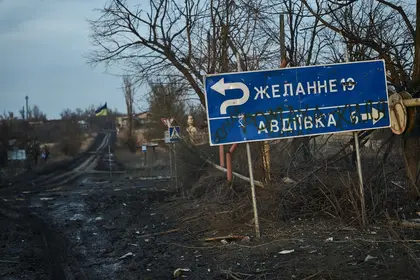Ukraine has been defending itself against the full-scale Russian invasion launched on 24 February 2022 for almost two years now. Initially, the Ukrainian military surprised observers with its resilience. However, hopes that the Ukrainian counter-offensive that began in June 2023 would quickly push back the aggressor were disappointed. Europe's press takes stock.
Reinforce air combat and recruit new troops
JOIN US ON TELEGRAM
Follow our coverage of the war on the @Kyivpost_official.
Spotmedia analyses the options at the disposal of the new Ukrainian military commander General Oleksandr Syrsky:
“The new commander faces two major challenges which his predecessor was unable to overcome: the lack of airspace control and the dwindling number of combat troops. The fact that Ukraine will soon be able to deploy more F-16 fighter jets and the launch of domestic drone production could give Ukraine more control over the airspace. ... That leaves the problem of troops, which can only be solved by a political decision to mobilise a new wave of recruits.”
Dominant in naval warfare even without a navy
The Economist admires Ukraine's military prowess at sea:
“The sinking of the Caesar Kunikov is yet another indication of how, even without much of a conventional navy, the Ukrainians are winning the war at sea. They reckon they have taken out at least a third of the Black Sea Fleet ... and forced the remaining vessels to operate at much greater distances from Ukraine's coast. ... The most important consequence so far of Ukraine's naval campaign has been the opening up of a corridor for commercial shipping to carry the country's grain exports.”

ISW Russian Offensive Campaign Assessment, January 21, 2025
Russia overestimating its strength
Looking back at the country's history, The Moscow Times relativises the myth of invincibility that is widespread in Russia:
“The Russo-Japanese War showed that successful quasi-Western countries could inflict local defeats on Russia in conflicts that can be described as border disputes. ... This was soon followed by the destruction of the Soviet army in Poland in 1920 and the crushing defeat of Josef Stalin's troops in the Winter War with Finland. In short, the theory of Russia's 'invincibility' requires serious corrections: while it was (and remains) impossible to inflict a total defeat on the country that would lead to its capitulation and occupation, its rivals are quite able to secure victories against it on certain fronts.”
Help Ukraine defeat the enemy
Supplying arms to Ukraine is also the best protection for the rest of Europe, security expert Rainer Saks writes in Maaleht:
“The Western powers have missed their chance to force the aggressor into a strategic retreat. ... The difficulties and delays in weapons deliveries were among the reasons why Ukraine was unable to launch a new offensive in 2023. This strategic clumsiness must be overcome. At the moment the Nato member states need not fear an imminent Russian attack. Russia lacks the necessary resources. A big boost in support for Ukraine would tie up Russia's military capacities even more.”
You can also highlight the text and press Ctrl + Enter










